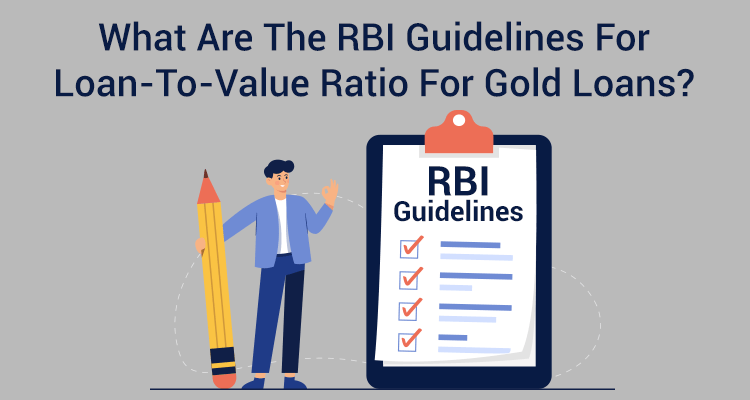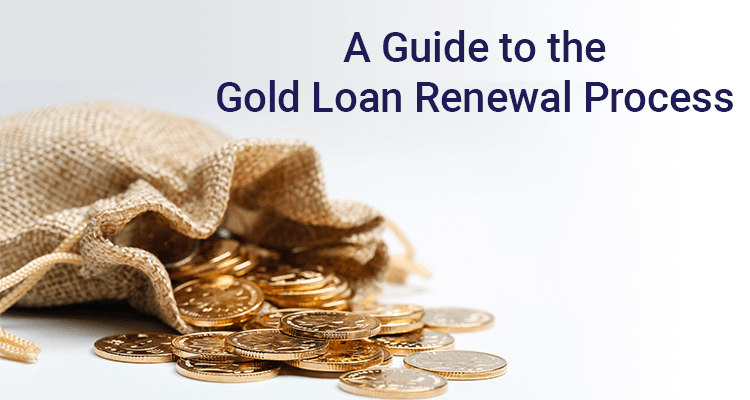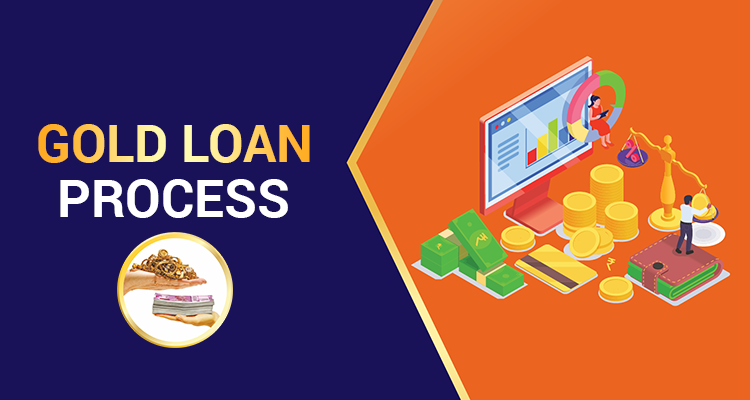Latest RBI Gold Loan Guidelines 2025: LTV Rules, Circulars & Regulations

Gold loans today have become an increasing means of accessing quick credit among most Indians. Indians have always treasured gold as an invaluable asset, giving the owner both a sense of stability and status. Few auspicious occasions like births or marriages are complete without the exchange of gold. The commodity is therefore available in almost every household making it an easily available collateral when one is in need of urgent cash for a reason which may not be covered by specific-purpose loans such as car loans or house loans.
For any registered financial institution offering a gold loan, the RBI guidelines on gold loans are sacrosanct. These guidelines are made to protect the interest of the borrower and the lender.
Understanding Loan-to-Value (LTV) Ratio for Gold Loans
In the case of a gold loan, the loan to value ratio, or LTV, is the ratio of the loan amount sanctioned to that of the value of gold deposited by the borrower as collateral. One needs to keep in mind that the value of the gold deposited as collateral does not depend on the price of purchase of the gold items. The purchase price one pays while buying gold jewellery usually includes a making charge and the value of any precious or semi-precious stones. The LTV is calculated on the basis of the actual weight of gold only.
The weight of the stones and the making charge of the jewellery is excluded from these calculations. However, the rate of gold that is applied to calculate the loan amount is as per the current market rate or the average rate of the past few days or weeks. This may vary from lender to lender.
Calculating the loan amount at the prevailing rate of gold gives borrowers a certain advantage. This is because in many cases a person will have bought the gold at a much earlier date. Since in general, gold prices are known to appreciate with time, the rate at which a person would have bought the gold would have been at a much lesser rate than the prevailing price.
Thus, for e.g., suppose you had bought a gold ornament which had 20g of gold a few years back at the rate of Rs.3000/- per gram. Suppose you then opt for a loan in 2023 when the rate is Rs. 5500/- per gram, the value of gold will be taken at approximately Rs110,000/- for the purpose of calculating the loan. This, even though the value at the time of purchase was only Rs.60,000/-. The lender can then offer you a loan amount of up to Rs 99,000/- or less. This is in keeping with the RBI guidelines for gold loan sanction.
IMPORTANCE OF LOAN TO VALUE RATIO:
The higher loan to value ratio sanctioned vide the RBI circular for gold loans means that borrowers can now avail a higher loan amount for the same amount of gold than they could previously, when the LTV was 75%. Prima facie this is good news for the borrower. However, loans with higher loan to value ratios are usually accompanied by higher interest rates.
The primary reason for the higher gold loan interest rate is that each gold loan issued by a lender has a cost component attached to it. These include staffing and establishment charges that are not easily visible to the lender.
Suppose the borrower defaults on the loan. In this case, the lender has only a 10% margin with which to recover the actual cost of lending, including sending notice of default to the borrower as per the norms in place and safe-keeping of the gold. This 10% of the gold value may not be sufficient to cover all the costs of the lender. Thus, if borrowers opt for a high loan to value ratio, the interest rates charged by the borrower are higher as they are considered to be a greater risk to the borrower.
Latest RBI Circular on Gold Loan (2025 Update)
- Maximum Limit: The RBI sets the maximum gold loan to value ratio (LTV) at 75% of the gold's market value. This means borrowers can get a loan amount equivalent to 75% of their pledged gold's worth.
- Temporary Increase: During the pandemic, the RBI temporarily increased the LTV to 90% to assist individuals facing financial hardship. However, this higher limit expired in March 2021.
Benefits for Lenders:
- Attract customers: A higher gold loan to value ratio allows lenders to offer larger loan amounts, potentially attracting more borrowers.
- Manage risk: Lenders might charge higher interest rates for loans with a higher LTV to mitigate the increased risk of defaults.
Benefits for Borrowers:
- Higher loan amount: The higher gold loan to value ratio allows borrowers to access a larger loan compared to traditional loans.
- Credit score flexibility: Unlike traditional loans, gold loans don't heavily rely on credit scores for approval, making them accessible for individuals with a low credit score.
- Potentially lower interest rates: Secured loans like gold loans generally have lower interest rates compared to unsecured loans. However, be aware that the interest rate might increase for loans with a higher LTV.
Conclusion:
The latest RBI circular in respect of gold loan rules and regulations pertaining to the Loan to Value ratio has increased. While this has one advantage in that borrowers can now avail a higher amount of gold compared to the earlier period when the RBI Circular on gold loan sanction had the LTV set at 75%, it also has a disadvantage. NBFCs who offer borrowers a high loan to value ratio are also likely to charge a higher rate of interest.
Frequently Asked Questions
Q1. How is LTV Calculated?
Ans. You can calculate your gold loan's LTV or loan-to-value ratio using this formula:
LTV = Taking the loan amount / the market value of your collateral
Q2. How does the LTV ratio affect the interest rate?
Ans. A higher LTV ratio would result in a higher interest rate, as a higher ratio indicates a riskier investment for lenders.
Ans. The new RBI rule for gold loans has hiked the existing limit of gold loans under the bullet repayment scheme for urban co-operative banks (UCBs). The existing limit of gold loans under the bullet repayment scheme has been hiked from Rs. 2 lakhs to Rs. 4 lakhs for UCBs who have met the overall target and sub-targets under the Priority Sector Lending as of 31 March, 2023.
Q4. What are the restrictions on gold loans?Ans. The RBI has stipulated that banks lend only up to 75% of the value of the gold jewellery pledged with the bank. This is to protect the interest of the borrower and the lender.
Q5. What is the minimum value for a gold loan?Ans. The minimum value for a gold loan varies from bank to bank and other Non-banking Financial Institutions (NBFCs). Including IIFL Finance, some other banks and NBFCs can give anywhere between Rs. 3,000 to Rs. 20,000 as gold loan.
Disclaimer: The information contained in this post is for general information purposes only. IIFL Finance Limited (including its associates and affiliates) ("the Company") assumes no liability or responsibility for any errors or omissions in the contents of this post and under no circumstances shall the Company be liable for any damage, loss, injury or disappointment etc. suffered by any reader. All information in this post is provided "as is", with no guarantee of completeness, accuracy, timeliness or of the results etc. obtained from the use of this information, and without warranty of any kind, express or implied, including, but not limited to warranties of performance, merchantability and fitness for a particular purpose. Given the changing nature of laws, rules and regulations, there may be delays, omissions or inaccuracies in the information contained in this post. The information on this post is provided with the understanding that the Company is not herein engaged in rendering legal, accounting, tax, or other professional advice and services. As such, it should not be used as a substitute for consultation with professional accounting, tax, legal or other competent advisers. This post may contain views and opinions which are those of the authors and do not necessarily reflect the official policy or position of any other agency or organization. This post may also contain links to external websites that are not provided or maintained by or in any way affiliated with the Company and the Company does not guarantee the accuracy, relevance, timeliness, or completeness of any information on these external websites. Any/ all (Gold/ Personal/ Business) loan product specifications and information that maybe stated in this post are subject to change from time to time, readers are advised to reach out to the Company for current specifications of the said (Gold/ Personal/ Business) loan.



